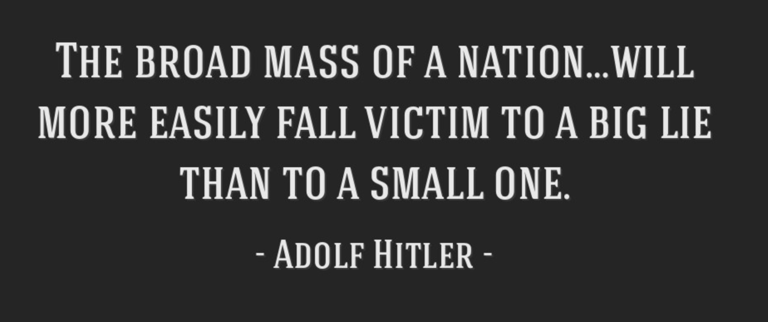“The great masses of the people will more easily fall victims to a big lie than to a small one.”
11/10/20251 min read
1. The Quote
“The great masses of the people will more easily fall victims to a big lie than to a small one.”
2. Interpretation
This means that when a lie is enormous and bold enough, people often believe it precisely because it seems too outrageous to be invented. Smaller lies are easier to detect, but large ones manipulate trust by overwhelming reason.
3. Historical or Contextual Meaning
This statement was written by Adolf Hitler in Mein Kampf to describe his observation of propaganda. Ironically, it later reflected the same tactic used by his regime — spreading vast, emotionally charged falsehoods until they appeared true through repetition and fear. It illustrates how manipulation depends not on truth, but on scale and confidence.
4. Modern Relevance
Today, this same mechanism operates through mass media, politics, and social networks. Large-scale misinformation often spreads faster than small corrections because people assume something so grand must have evidence behind it. Emotional narratives and viral content often replace careful thought.
5. Who It Affects Most
The public at large — especially those who consume information passively or rely on social validation rather than verification. The more polarized or distracted a society becomes, the easier it is for “big lies” to circulate unnoticed. The cost is collective trust and the ability to distinguish fact from fiction.
6. In Essence
In essence, this quote warns that deception gains power when people stop questioning. The greater the lie, the more it depends on emotional belief instead of proof. The antidote is awareness, humility, and the courage to examine what feels convenient to believe.

